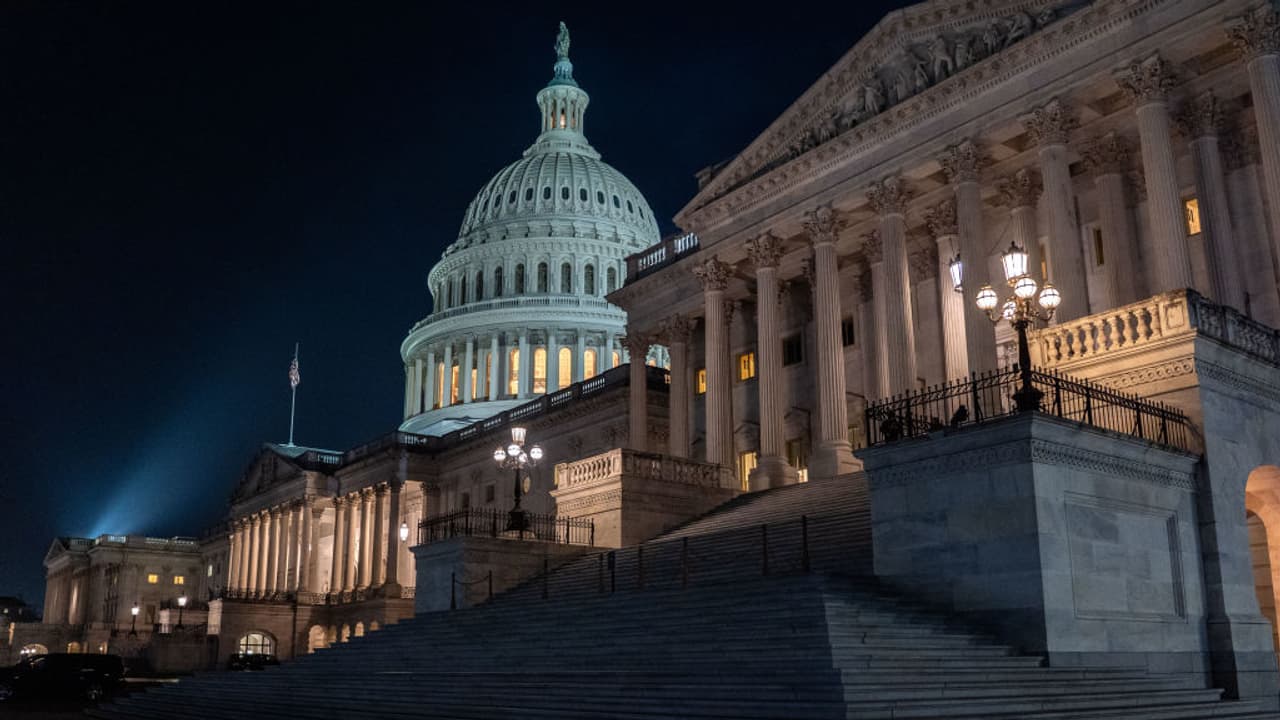The US Congress passed crucial spending legislation early Saturday morning, narrowly avoiding a disruptive government shutdown just before the busy holiday travel season.
The US Congress passed crucial spending legislation early Saturday morning, narrowly avoiding a disruptive government shutdown just before the busy holiday travel season. The Democratic-controlled Senate approved the bill 85-11, just 38 minutes after funding expired at midnight. The government continued operating without triggering shutdown procedures.

The bill will now be sent to President Joe Biden, who is expected to sign it into law. It had previously passed the Republican-controlled House of Representatives with bipartisan support.
This late-night vote followed a chaotic week, during which President-elect Donald Trump and his ally Elon Musk blocked an initial bipartisan deal, causing turmoil in Congress. The final package removed certain provisions favoured by Democrats, who accused Republicans of yielding to pressure from Musk, an unelected billionaire with no government experience.
Trump’s demand to raise the debt ceiling, a contentious issue, was not addressed before his January 20 inauguration. With the federal government spending roughly $6.2 trillion last year and a debt of over $36 trillion, Congress will need to authorize further borrowing by mid-year.
The bill extends government funding until March 14, allocates $100 billion for disaster relief, and provides $10 billion for farmers. It also extends farm and food aid programs set to expire at year-end.
Some Republicans opposed the package, criticizing its lack of spending cuts. House Speaker Mike Johnson emphasized that the party would have more influence next year with majorities in both chambers and Trump in the White House. “This was a necessary step to bridge the gap,” he said, adding that Trump supported the deal.
A shutdown would have severely disrupted federal operations, from law enforcement to national parks, and halted paychecks for millions of workers. The travel industry warned it could cost airlines, hotels, and other businesses $1 billion per week, leading to widespread disruptions during Christmas travel.
The bill’s final form resembled an earlier bipartisan plan abandoned after Trump and Musk criticized it, particularly for including unrelated provisions like a pay raise for lawmakers and a crackdown on pharmacy benefit managers. Many of these elements were removed, including a provision limiting investments in China, which Democrats argued conflicted with Musk's business interests.
“He clearly does not want to answer questions about how much he plans to expand his businesses in China and how many American technologies he plans to sell,” Democratic Representative Rosa DeLauro said on the House floor.
While Musk, tasked by Trump with heading a budget-cutting task force, has no official position in Washington, he expressed satisfaction with the bill on X, calling it "a bill that went from weighing pounds to weighing ounces."
House Democratic Leader Hakeem Jeffries said his party succeeded in advancing key goals, such as blocking a debt-ceiling increase that could facilitate tax cuts. "We have successfully advanced the needs of everyday Americans, but there are still things to be worked on and we look forward to that fight in the new year," he said.
Trump’s demand for a debt ceiling increase was overwhelmingly rejected by the House, including 38 Republicans. Johnson indicated that lawmakers would revisit the issue in January.
Representative Rich McCormick, one of 34 Republicans who voted against the bill, argued it would only increase the nation’s debt. “We will be the country of the past if we continue doing what we're doing,” he said.
The last government shutdown occurred during Trump’s first term, lasting 35 days over a dispute about border security. Previous debt ceiling standoffs have caused global financial market anxiety, as a US government default could trigger credit shocks. While the current debt ceiling suspension expires January 1, lawmakers are unlikely to address the issue before spring.
